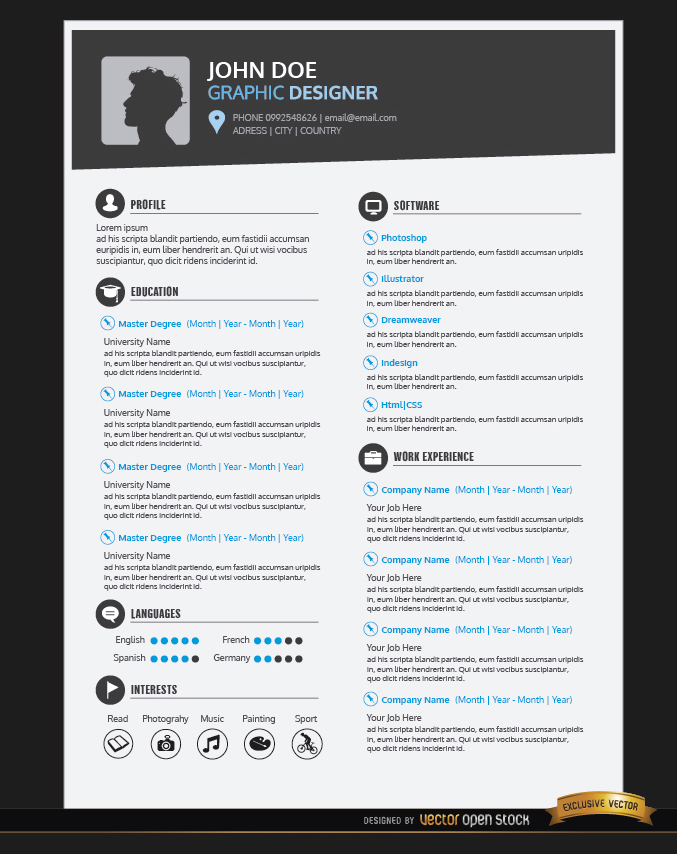How to Explain Gaps in Your CV: The Ultimate Guide
Imagine this: you discover an incredible retail interiors or self-storage career opportunity that aligns perfectly with your goals and priorities as an employee. But, as you prepare to apply for the role, you notice a problem: a glaring gap in your CV.
Maybe you spent a year or two “not working” whilst you dealt with personal priorities, or you struggled to find a new role for a while after leaving another job. Whatever the reason for the gap, you know you will most likely have to explain it to your potential employer.
The thought of explaining a gap in your work history can be daunting. You might assume it will paint you negatively or reduce your chances of getting a job offer. However, CV gaps are more common than you think, and they need not be a red flag to employers.
What matters is how you address the gap. Here, we’ll show you how to frame career gaps positively and ensure you take advantage of valuable opportunities.
Understanding CV Gaps
A CV gap is any period in an individual’s career history where they were unemployed. If this is you, you are not alone, as McKinsey found that 62% of all employees will have a gap at some point in their professional history.
Gaps can be caused by career transitions, such as when you decide to leave an old retail interiors or self-storage role and don’t have a new opportunity lined up in advance. You might transition into a period of unemployment while pursuing personal development opportunities, taking ‘time out’ to travel the world or investing in your education.
Sometimes, CVgaps are because of family responsibilities (such as caring for children or relatives), health issues (physical or mental), and changes in priorities. For instance, you might leave a role to focus on a passion project or voluntary work.
There are plenty of instances where gaps in your career may not be something you could have predicted or prevented. Companies can close, lay off team members, and make employees redundant for various reasons, leading to unexpected career gaps.
The Importance of Transparency
Whether the gap in your retail interiors or self-storage CV was caused by something inside your control or not, explaining it to a new employer can be anxiety-evoking. This is demonstrated by up to 53% of candidates in one study saying they’d feel more confident applying for roles if they didn’t have to disclose the reasons behind their career gaps.
Remember that having a gap in your work history doesn’t necessarily mean you’ll have less chance of getting the role you want. LinkedIn found that 79% of managers will happily hire candidates regardless of career gaps.
When you confidently address the reason for the gap with your prospective employer, showing how it benefited you or contributed to your personal development, you’ll seem more proactive and trustworthy to them.
Being clear and transparent about your career gap sets a positive tone for building a relationship with your employer. It shows integrity and self-awareness and allows you to control the narrative surrounding your career history.
Reframing Career Transitions as Opportunities
Many retail interiors or self-storage candidates are concerned that CV gaps would make them seem noncommittal, flaky, or unreliable. However, how a hiring manager or employer perceives a career gap depends on how you frame it.
Even if the reason for your employment gap didn’t directly contribute to your value as a candidate (like a year spent earning an unrelated certification), you could draw attention to how the gap benefited you.
Your unemployment period contributed to your adaptability and resilience, showing you how to adapt to new challenges and periods of potential uncertainty. You might have had a chance to try different interim roles, whether as a traditional employee, contractor, or volunteer, to help you uncover new insights and skills.
Think about how you can draw attention to the gap’s positive results, even if it only helped you progress through a period of self-discovery.
Crafting a Compelling CV
If you’re invited to an interview, you should have a chance to discuss your CV gap in more depth with your potential employer. However, to improve your chances of getting to that stage, you must structure your CV correctly.
First, think about the format. Instead of using a chronological CV that lists all of your previous experiences in order, drawing more attention to gaps, highlight the experiences most relevant to the role you’re applying for in order of importance.
Begin your CV with a strong summary or profile section that encapsulates your professional identity, spotlighting your unique characteristics and the strengths you’ll bring to the potential employer. Instead of listing previous job titles, focus on tailoring your CV to draw attention to your achievements and accomplishments over the years.
If you notice a gap in your CV is pronounced, add bullet points explaining what you did during those periods. For instance, did you spend time volunteering, doing freelance work, seeking out courses, or travelling to expand your personal growth?
Addressing Gaps in Cover Letters and Interviews
Before you’re invited to a retail interiors or self-storage interview, you can proactively use your cover letter to address a career gap. Don’t go too in-depth with your explanation in the cover letter, but briefly describe why you weren’t employed during this period, then redirect the focus back to the skills and experiences that make you suitable for the role.
When invited to an interview, prepare to provide a more in-depth explanation. Plan what you’re going to draw attention to in advance, focusing on:
- What you learned during the period: Did you develop any new specific skills or learn more about the industry, your priorities, and your strengths and weaknesses?
- Valuable experiences: What experiences did you have during the gap that contributed to your value as an employee? For instance, did you develop more resilience and grit?
- Relevance to the role: Are there any experiences you had during the gap that are particularly relevant to the role? For instance, did travelling help you better understand the priorities of different retail interiors or self-storage customers or clients?
Take note of your tone and body language while responding to interview questions about the gap. Maintain an open posture and make eye contact.
Committing to Continuous Professional Development
All the strategies above will help you frame CV gaps more positively when you’re applying for new roles. However, the best way to make explaining gaps feel less daunting is to proactively invest in constant professional development.
If you’re committed to continually improving your skills and abilities, particularly during unemployment, you’ll have a much easier time making gaps seem optimistic. During career transitions, look for ways to use your time effectively.
Take online courses and explore new certification opportunities. Learn about industry trends and experiment with the latest technology. Invest in networking and visit industry events. Consider freelance work, consulting, or voluntary sector opportunities.
In your CV or cover letter, highlight these proactive personal development strategies and explain how they enhance your value as a candidate.
Don’t Fear the CV Gap
Gaps in a CV are becoming increasingly common, particularly as retail interiors or self-storage employees pursue new priorities and explore non-linear paths to progression. Therefore, explaining periods of unemployment in your career history shouldn’t fill you with panic.
Rethink how you look at these gaps and present them to potential employers. Suppose you can frame your career gaps as periods that enabled you to improve your skills or personal growth. In that case, it helped you become a more valuable prospective employee, enhancing your chances of getting the role.
Bob Garton, Glencourt Associates Ltd
If you would like help and advice regardinmg the content of your own CV, contact us at jobs@glencourtassociates.com, or call 01342 712253. www.glencourtassociates.com
Glencourt have helped talented people like you expand their carers in the retail fitout, fixturing, POS and POP market recruit high calibre people for the last 35 years. Our consultancy team have a combined 130 years’ personal experience within this niche market, a fact that cannot be matched by any other recruitment business. Additionally, Glencourt Associates is known as the leading recruiter within the rapidly expanding Self-Storage market, and Oliver Dunn and his team have placed talented people into growing companies in this sector for more than 10 years.




